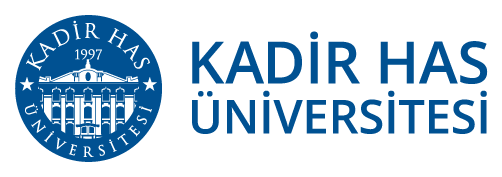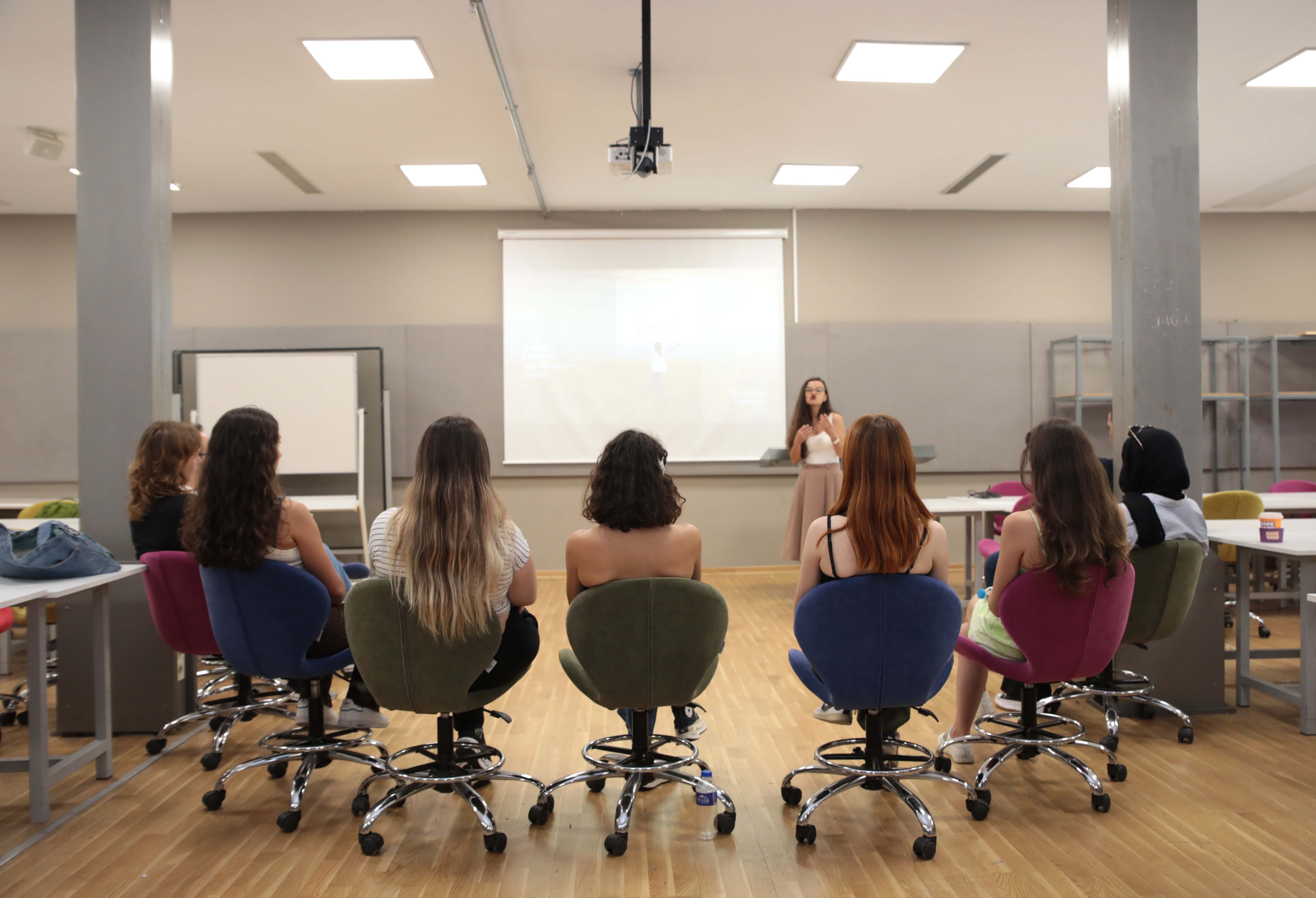KHAS Barrier-Free / Persons with Disabilities Commission
2021-2022 Academic Year KHAS Barrier-Free / Persus With Disabilities Commission Report
Within the scope of our university's Barrier-Free KHAS Commission, 2022-2023 education and academic year the works carried out and ongoing in the year are given below:
- C Block lecture theatre garden railing construction for emergency outdoor access completed.
- A Block basement floor lecture theatre garden laboratories corridor for the visually impaired construction of directional-information signs and tactile/guiding surfaces completed.
- All signboards of Block A basement floor lecture theatres and garden laboratories were changed to Bril Alphabet transformed.
- Web Content Accessibility Standards and Criteria of our university website (WCAG-2.1) standards and to ensure that special needs to be made available to our students as well as the general public study was carried out.
- During the pandemic period, all printed resources requested by the students of our University from the Information Centre (library) were sent by post without any charge were delivered to our students. On this occasion, during the pandemic process, our students the use of our printed resources is provided in a barrier-free manner.
Non-discriminatory Admissions Policy
Kadir Has University is a foundation university that complies with Article 10 of the Turkish Constitution states that everyone is equal before the law without distinction regarding language, race, color, sex, political opinion, philosophical belief, religion & sect, or other grounds, and Council of Higher Education (YÖK), which regulates the higher education in Türkiye, rules and regulations within its all procedures. KHAS also abides by the National Student Selection Placement Centre Regulations with reference to Article 7, which guarantees reliability, confidentiality, impartiality & equal opportunities for all.
Kadir Has University’s Policy Against Harassment and Discrimination and KHAS Barrier-free Commission
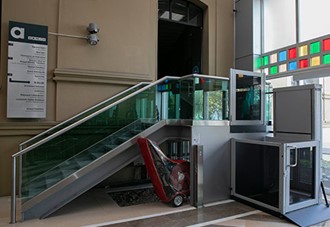
The Accessible KHAS Commission
The Accessible KHAS Commission aims to eliminate any obstacles that students of the KHAS family may encounter on campus, with a particular focus on making life easier for our students with disabilities.
Members of the Accessible KHAS Commission:
- Prof. Dr. Mitat ÇELİKPALA, Vice-Rector for Education
- Prof. Dr. Aslı ÇARKOĞLU, Faculty of Economics, Administrative and Social Sciences
- Assoc. Prof. Aslı AKTAN ERCİYES, Faculty of Economics, Administrative and Social Sciences
- Aslı Ceylan BEBEK, Director of Campus Life
- Muhammet SEVİNÇ, Manager of Construction and Technical Affairs
- Ceren Nurdan DİRİKOL, Student Representative
Disabled Students/Disadvantaged Groups
Work on students with disabilities and disadvantaged groups is monitored by both the Dean of Students' Office and the Academic Council.
The Dean of Students' Office
The office was established in 2023 to carry out all processes related to all issues that directly concern students, including academic, social and professional development. Dean of Students Office supports students’ overall well-being and academic success throughout their university experience.
Administrative Units Affiliated to the Dean of Students Office
- Directorate of Campus Life
- Psychological Counselling and Guidance Office
- Career Office
- Alumni Relations Office
- Erasmus and Exchange Office
- Providing and maintaining an infrastructure that only the relevant student can access and digitizing the textbooks to the extent permitted by the copyrights in order to provide access to course resources for visually impaired students by the Information Center Directorate to our disadvantaged groups,
- In order to ensure that disadvantaged students have access to printed library resources, support continues to ensure that resources are sent to their addresses by cargo and returned.
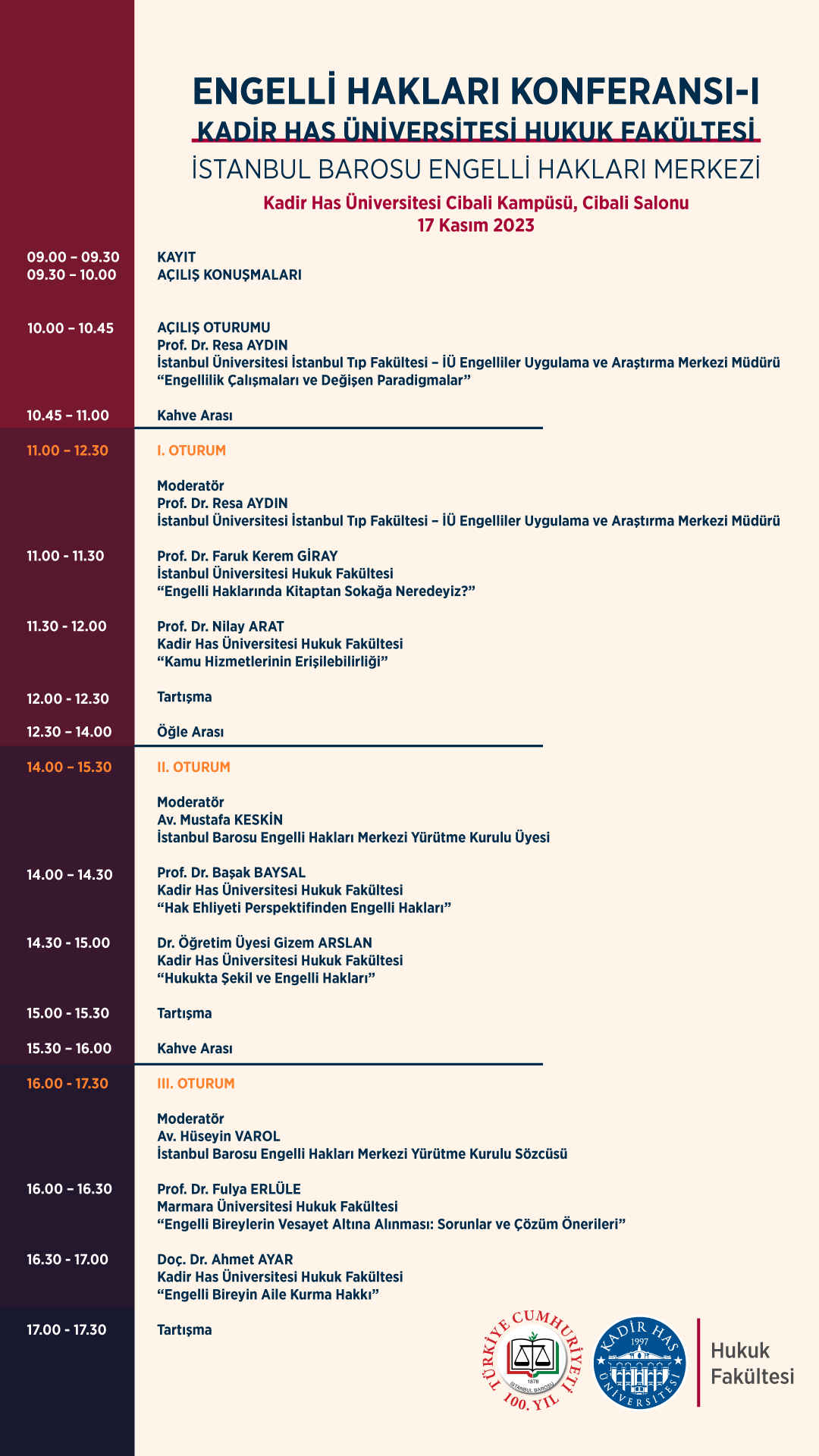
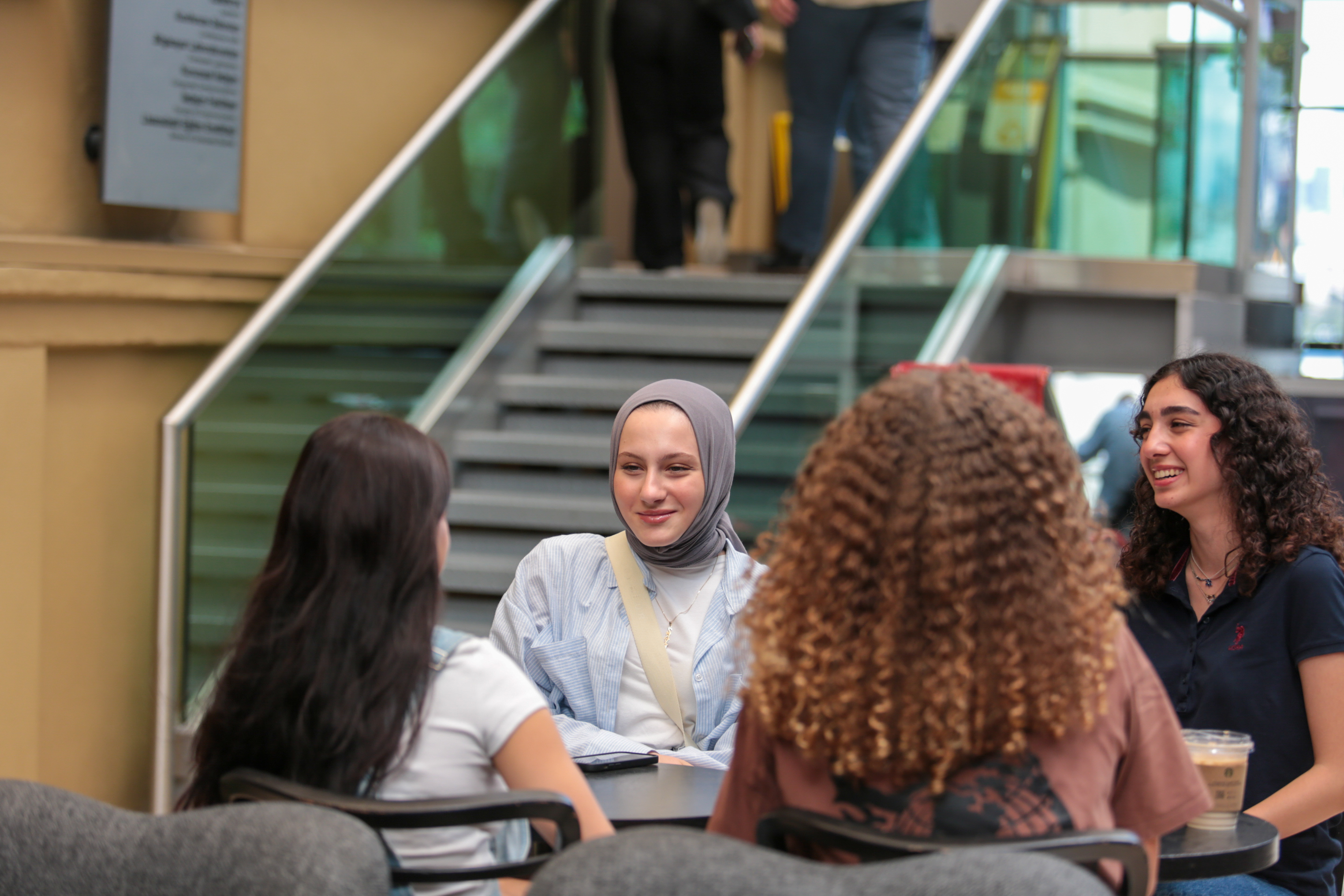
Directorate of Education Policies and Review
Health Support Units
Healthcare Services
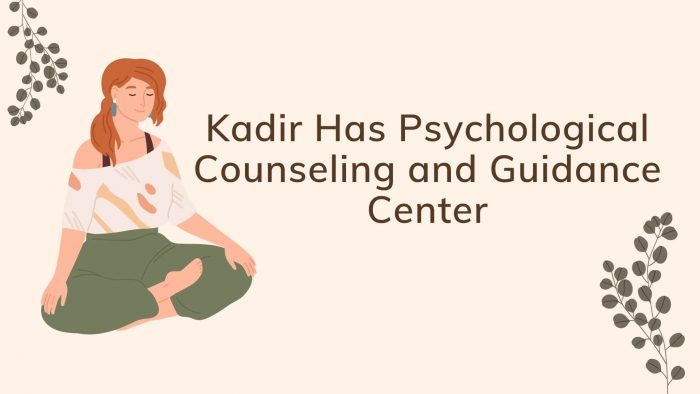
Kadir Has Psychological Counseling and Guidance Center
With this seminar,
- Deeper understanding of specific student behaviours, empathic response, solution-oriented approach
- Awareness of students' developmental characteristics
- Skills to cope with difficult emotions
- Practising self-compassion
- Crisis and coping in crisis situations
- Views on understanding the changing needs of students were shared.
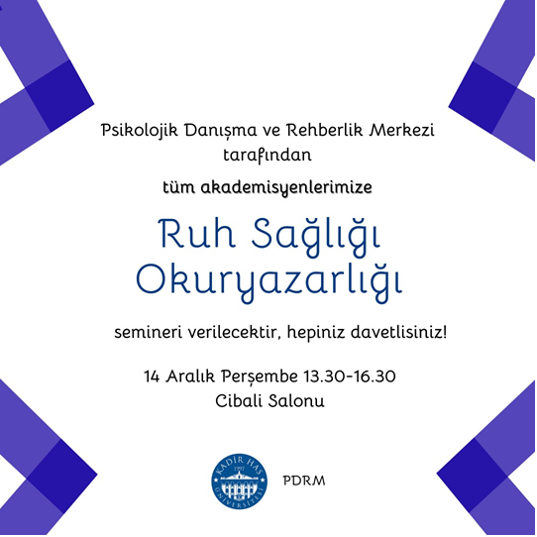
KHAS Psychological Counseling and Guidance Center (KHAS-PDRM) puts the needs of students at the center and enables them to realize their mental, emotional and social potential. To use this potential and the resources around it efficiently, we aim to provide protective/preventive and, when necessary, intervention-oriented mental health services voluntarily to give a multicultural psychological service with a reliable and sheltered environment.
However, it is to carry out “preventive” studies for the problems that may arise during the learning process. With our work, we adopt a psychological approach different from medical intervention, which deals with the human as a whole.
PRINCIPLES
Competence: All of our counselors and psychologists serve within the scope of their education levels and competencies. When they encounter a unique situation that exceeds the limits of competence, they are responsible for seeking help by applying to the available scientific, professional, and technical resources and developing their competence with scientific training.
Honesty: Our psychological counselors and psychologists adopt honesty, accuracy, and reality as principles in the psychological counseling process. He makes a correct statement about professional qualifications and is aware of his limitations.
Being sensitive and respectful: Psychological counselors and psychologists are sensitive to individual rights and freedoms and are responsible for acting impartially while helping clients recognize their interests, abilities, and values.
Sensitivity to individual and cultural differences: Our psychological counselors and psychologists are aware of the needs and problems of every segment of society and try to adapt the methods and techniques they use in their work according to their needs. In addition, it takes care that individual and cultural differences such as age, gender, religion, language, race, socioeconomic level, belonging to different groups or cultures, sexual orientation, and marital status do not adversely affect the service they will provide.
Confidentiality: Interviews with our psychological counselors and psychologists are conducted in line with ethical and professional principles. The principle of trust and privacy is fully fulfilled. The conversations will not be shared with other people without your permission. However, when your or someone else’s life is in danger, third parties can be contacted. Even in this case, we will contact you before sharing information with others. In some cases, students are also responsible for ensuring the confidentiality principle (e.g., sharing in the group counseling process).
CONTACT
Burcu DOK, Senior Specialist
Burak TUNA, Specialist
Büşra Nur Ceylan, Specialist
THE Gender and Women's Studies Research Center
Mission, Values & Vision Statement
The Gender and Women's Studies Research Center at Kadir Has University aims to create an intellectual locus for interdisciplinary research, teaching and institutional change related to gender equality. As one of our goals, we seek to critically re-examine discussions of equality and gender as they pertain to the status of women, while bearing in mind that the field is not limited to male and female prototypes but also includes lesbian, gay, bisexual, transgender and intersex (LGBTI+) individuals. We are specifically interested in creating change that is systemic and sustainable.
Ours is a feminist organization. We define feminism as a social movement that seeks to end sexist and gender based oppression. As such, simply adding more women to existing system is not enough, rather our goal is a transformation of systems of power so that they value a diversity of peoples and create conditions of equality. To this end, men have a role to play in advancing gender equality and we believe that an interrogation of cultural ideas of masculinity is vital1.
Mission
Our mission is to educate and produce research for academic communities and the public, primarily but not exclusively in Turkey, with the hope of contributing to ending sexism and dismantling gender based oppression.
Vision
- Producing high quality, scientifically driven research
- Organising gender equality plans & activities
- Initiating active collaboration with the university (campaigns & workshops)
- To network with other institutions
- Organising and attending seminars
- Creating awareness campaigns
- Contributing to diversity
- Improving reputation management (communication skills, branding)
- Reaching out to men & work on masculinity issues.
[1] This is heavily inspired by the work of bell hooks. “Feminism Theory: From Margin to Center”. New York: South End Press, 2000.
Social Responsibility Projects For Reduce Inequlities
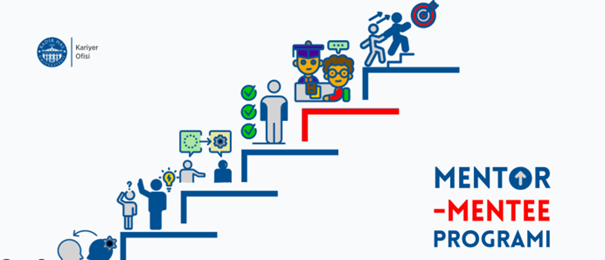
KHAS Mentor-Mentee Program
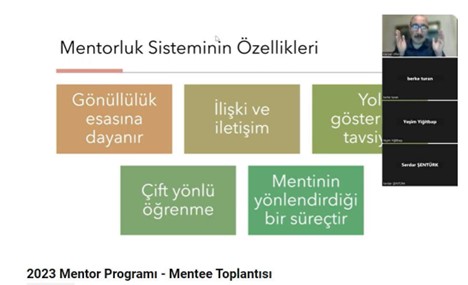
https://www.khas.edu.tr/khas-buddy-programi/
Kadir Has University Buddy Program, organized by the University's Directorate of Education Policies and Review, aims to facilitate the adaptation process of students starting in the preparatory or first year at our university.
As part of this program, students who are knowledgeable about the university, academically successful, and have strong communication skills will act as both mentors and the first friends of new students. Working under the titles "Superbuddy" and "Buddy," these students will not only make new friends each year but also share their experiences and provide quick solutions to the questions of incoming students.
The main responsibilities of students participating in the KHAS Buddy Program include:
- Contacting every new student on the provided list and, with their consent, creating a communication group,
- Maintaining regular communication with the group and responding quickly to their questions,
- Organizing meetings with new students to introduce them to their departments, faculties, and social spaces,
- Inviting new students to Kadir Has University's Orientation Days and providing information about the event,
- Providing information about the university's administrative units (such as the Directorate of Student Affairs, International Office, Erasmus and Exchange Office, Career Office, and the Directorate of Financial Affairs).
